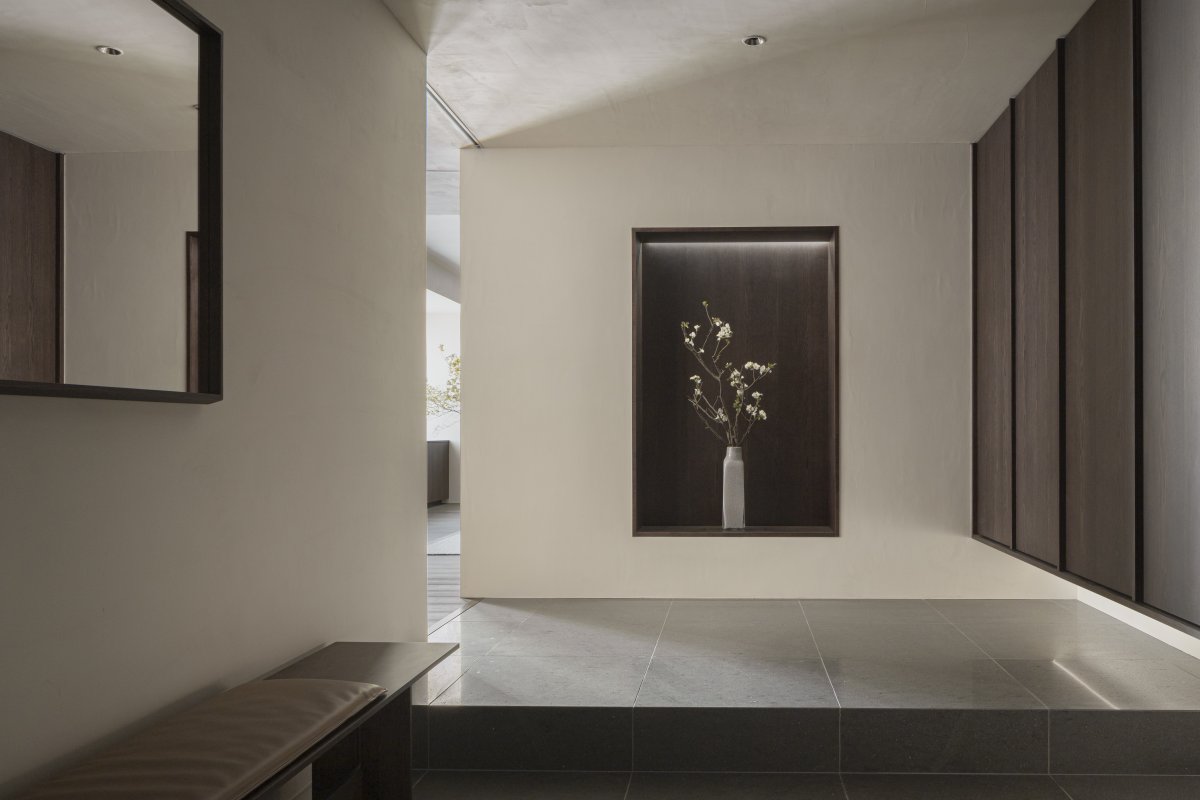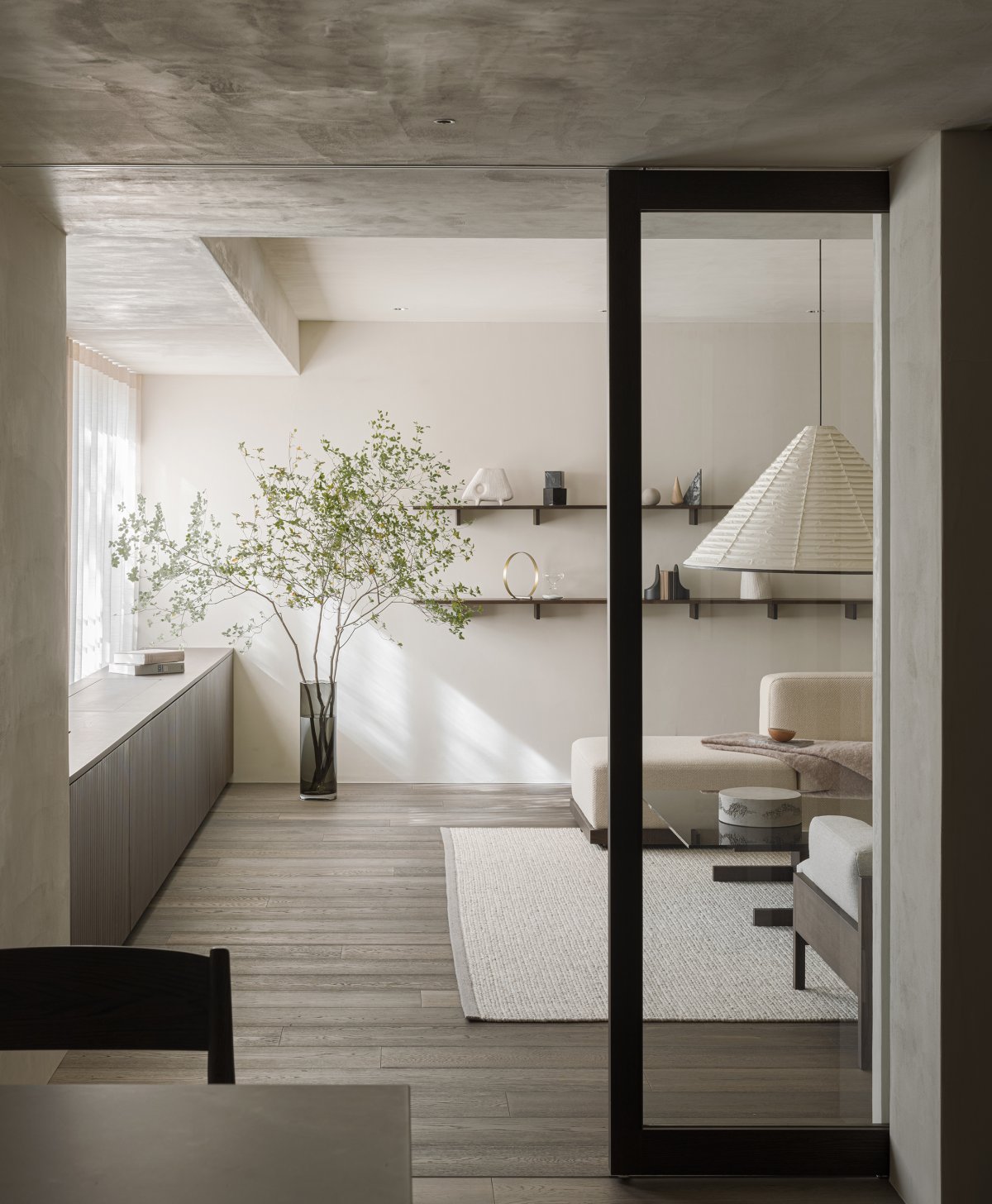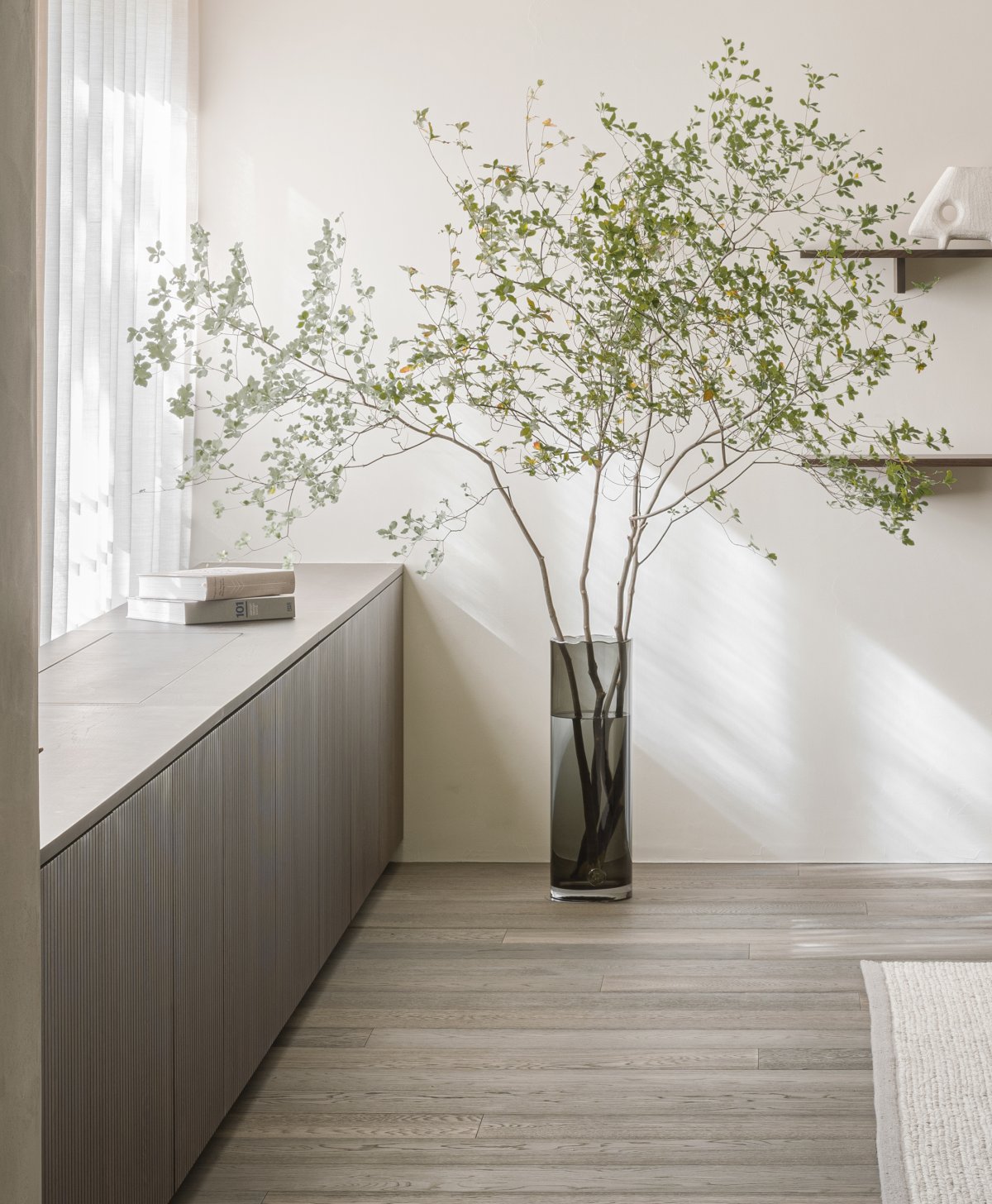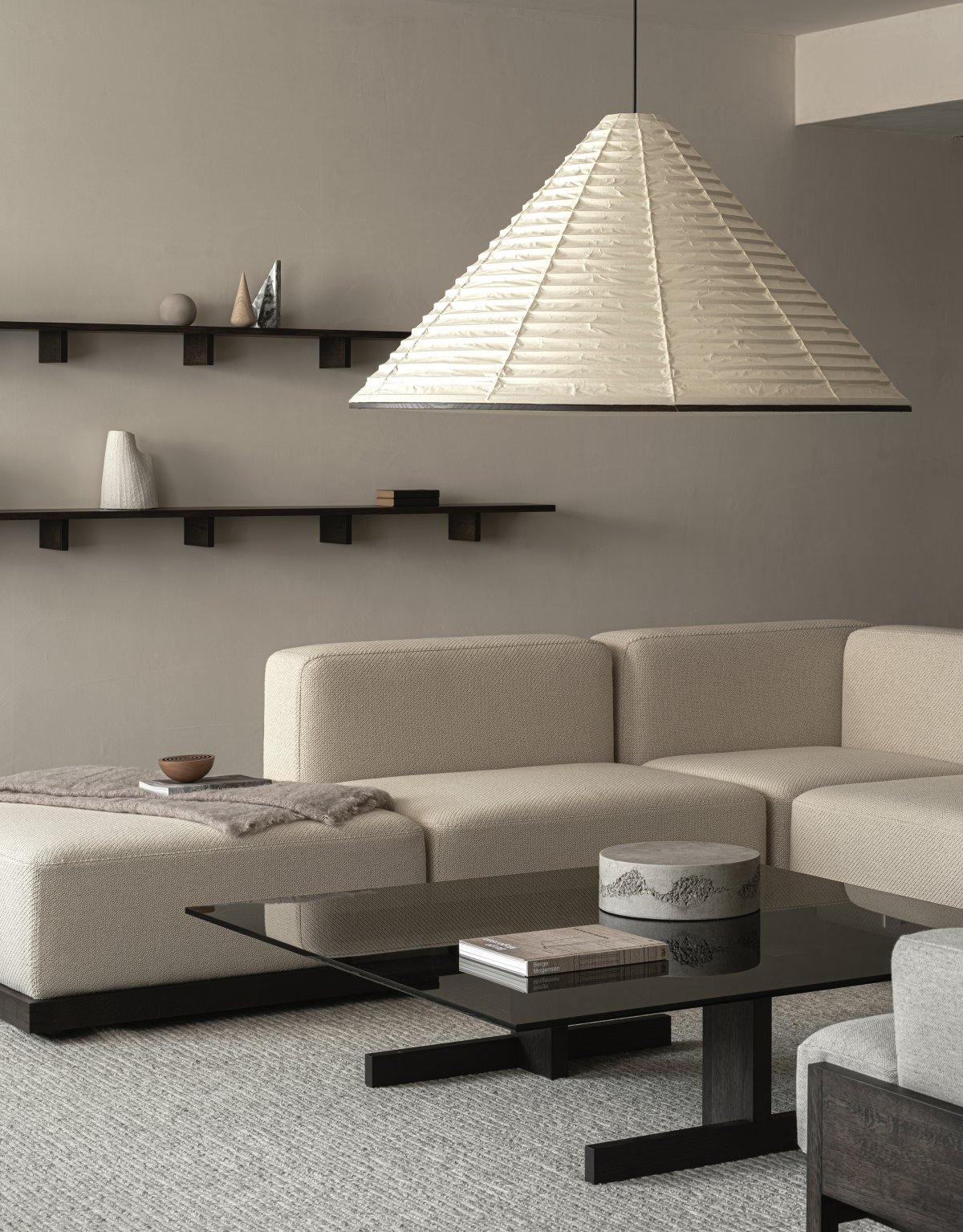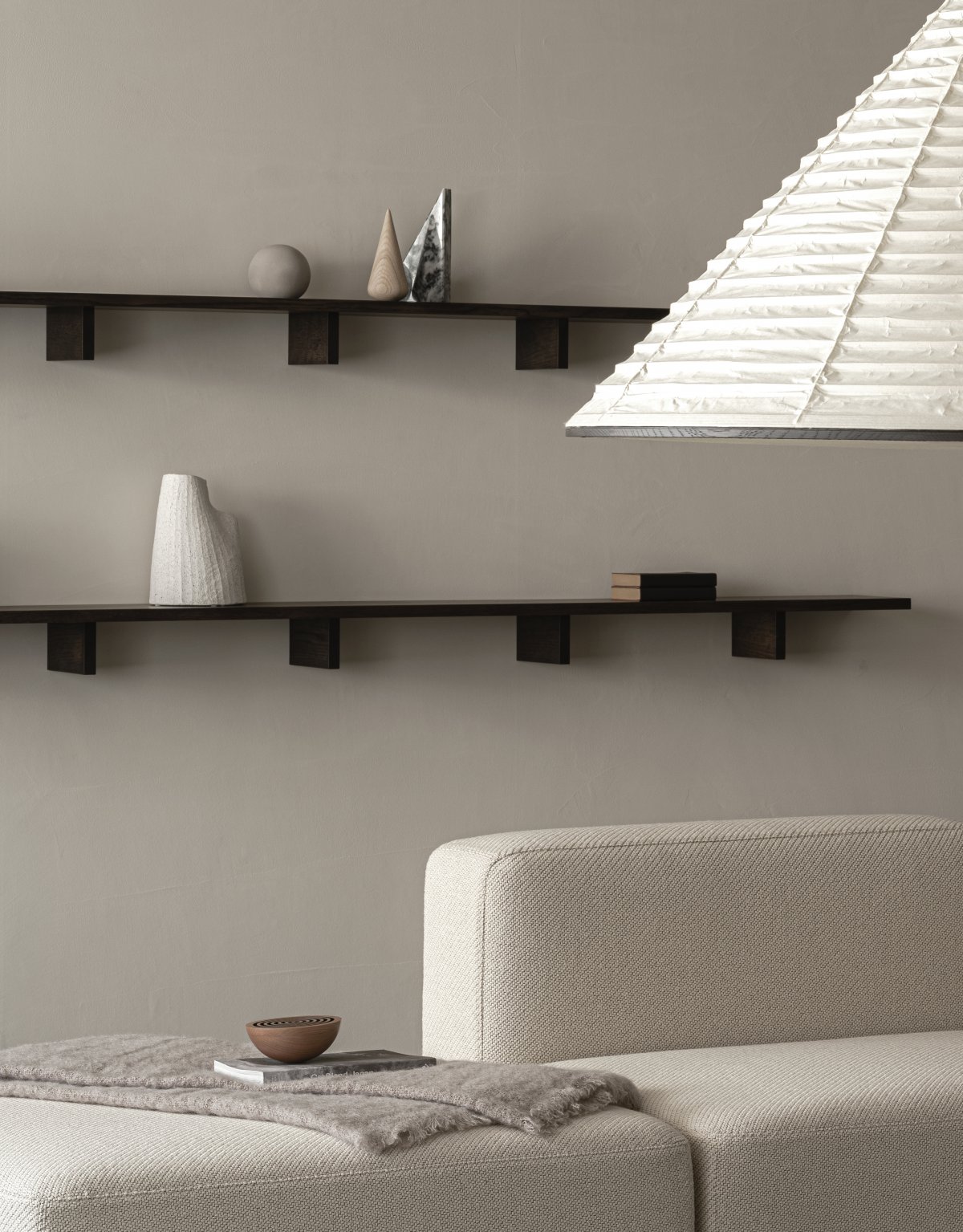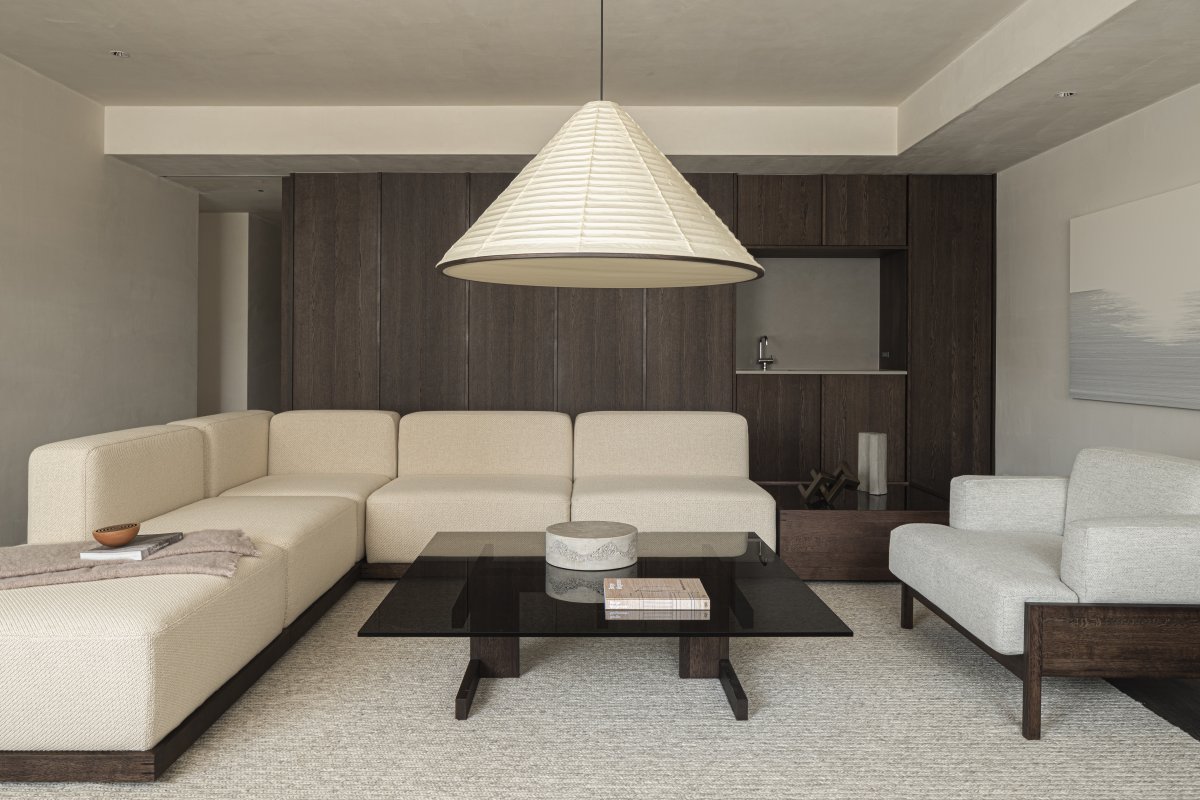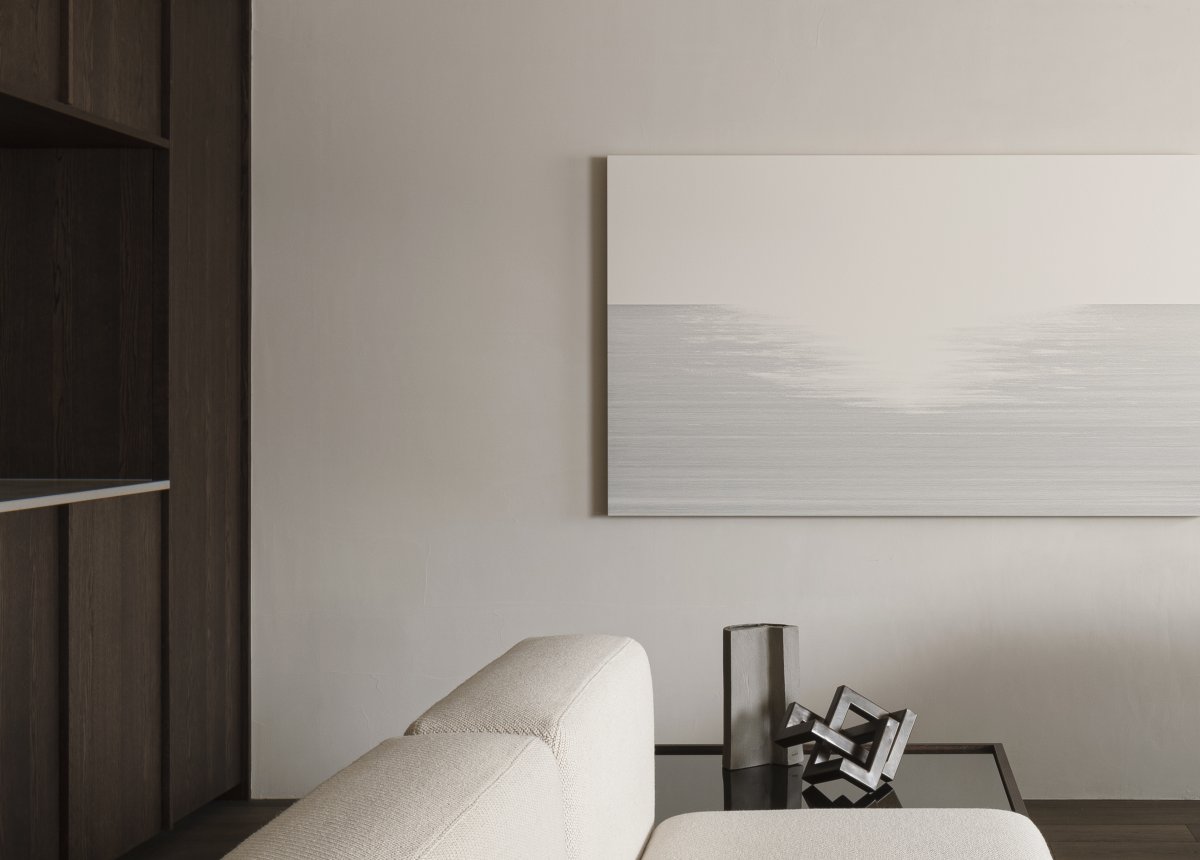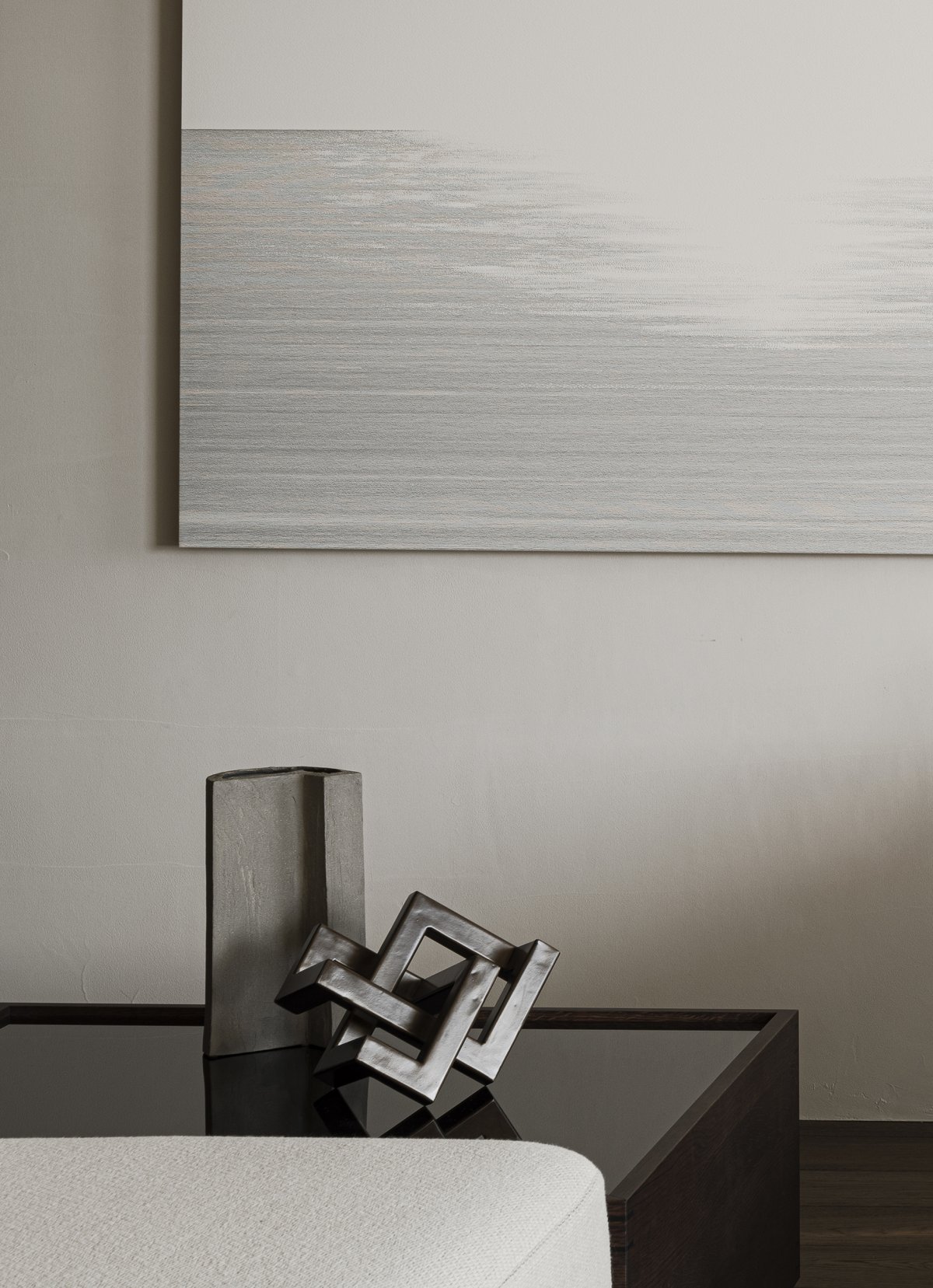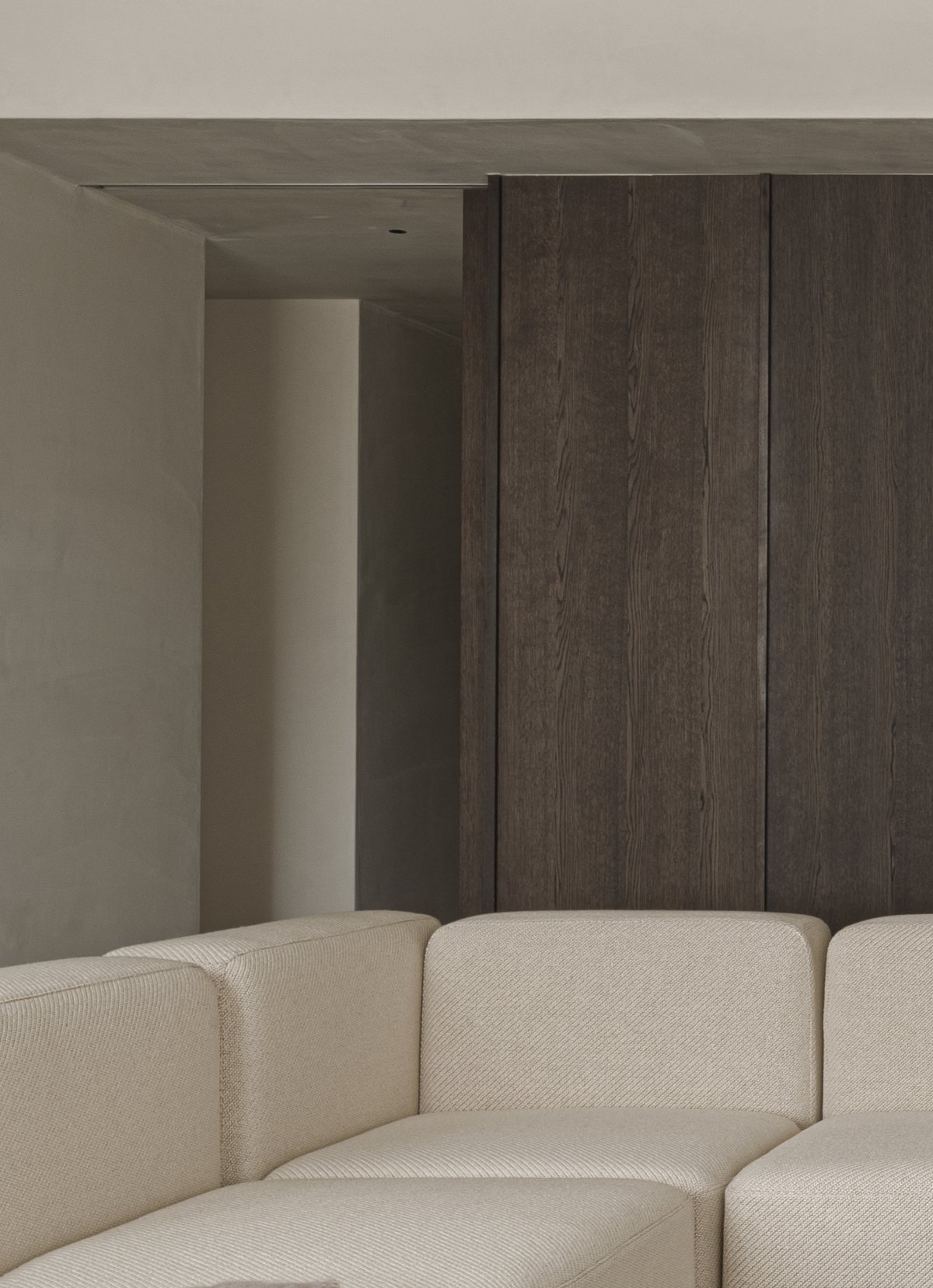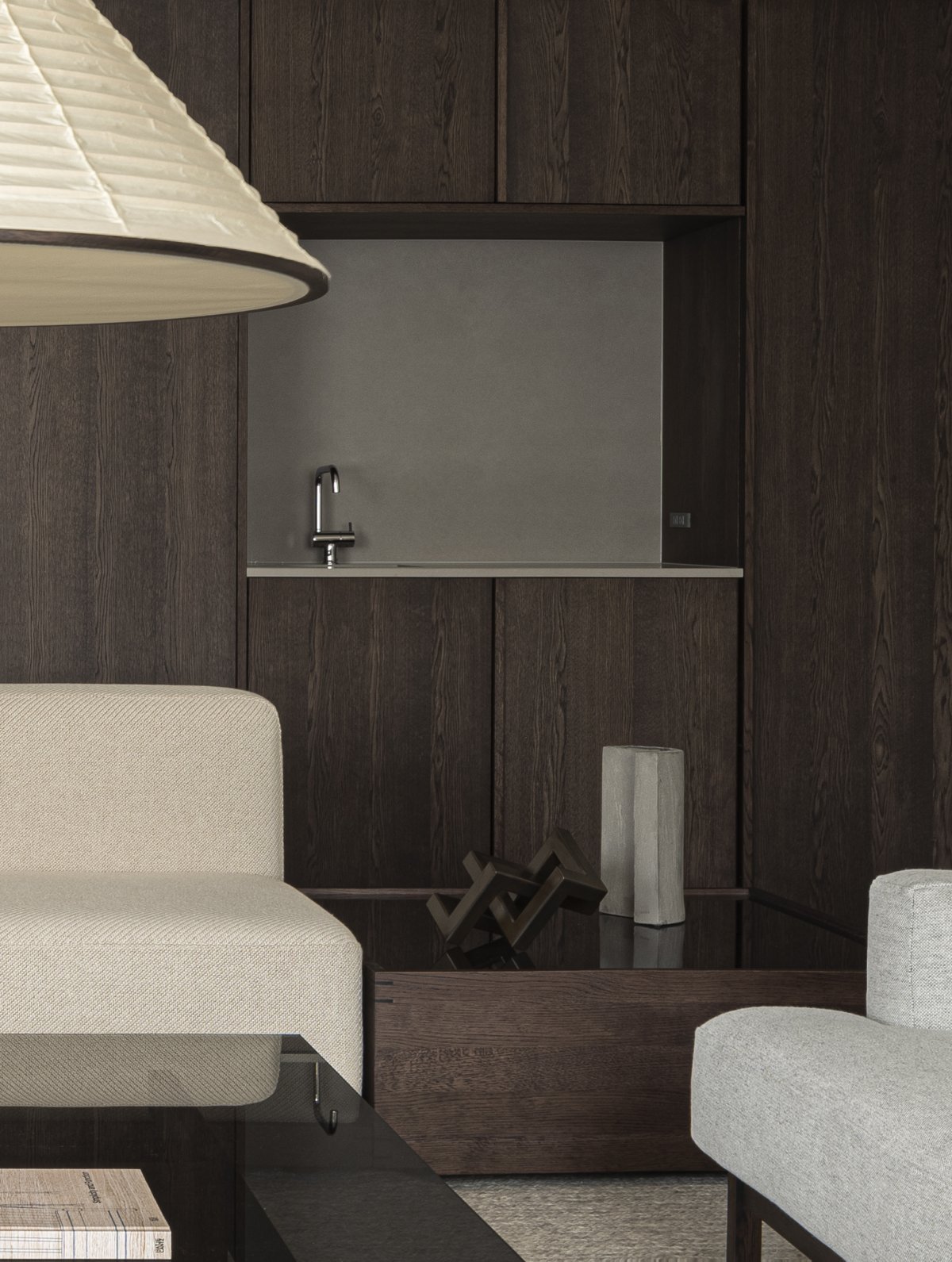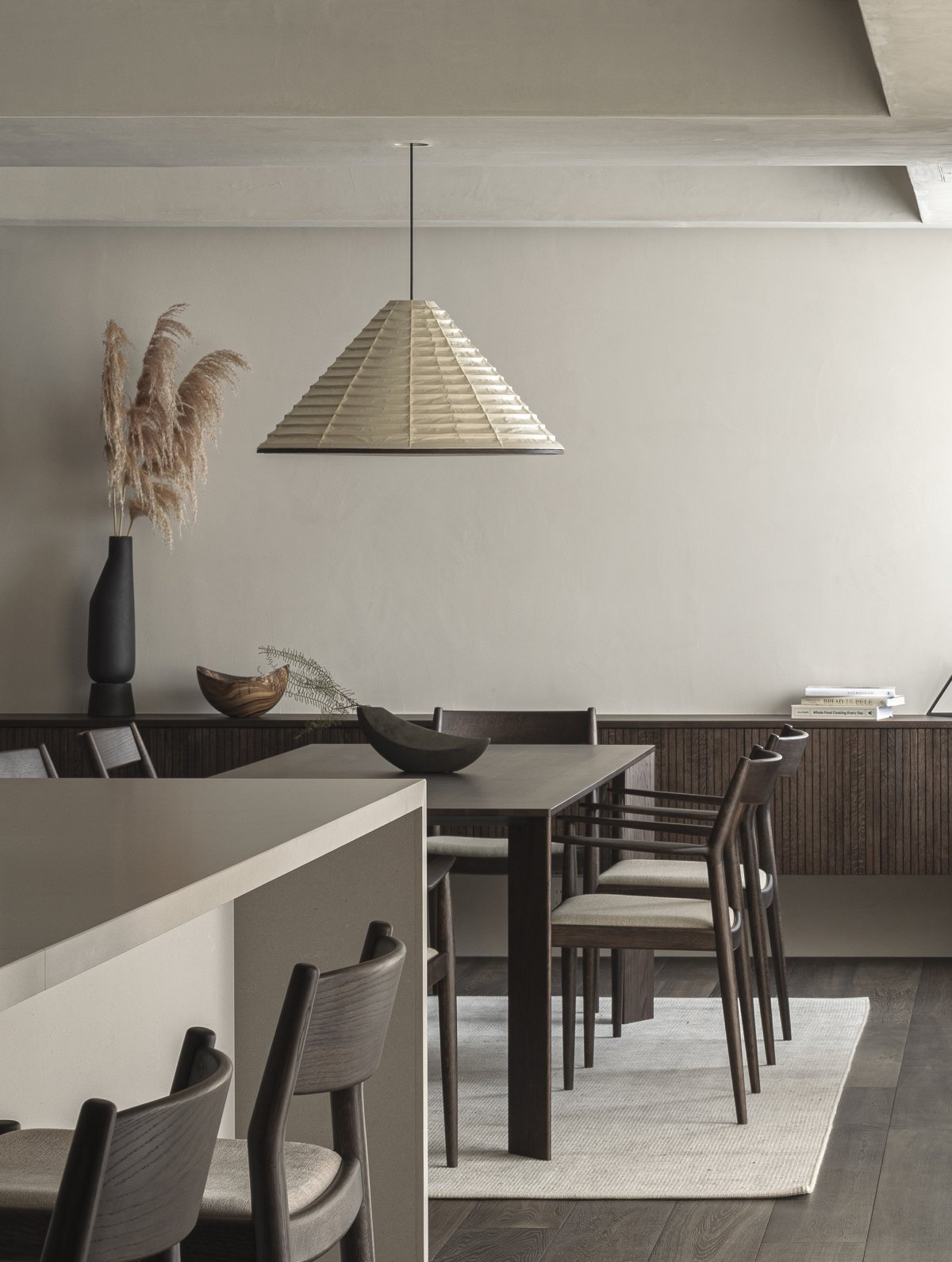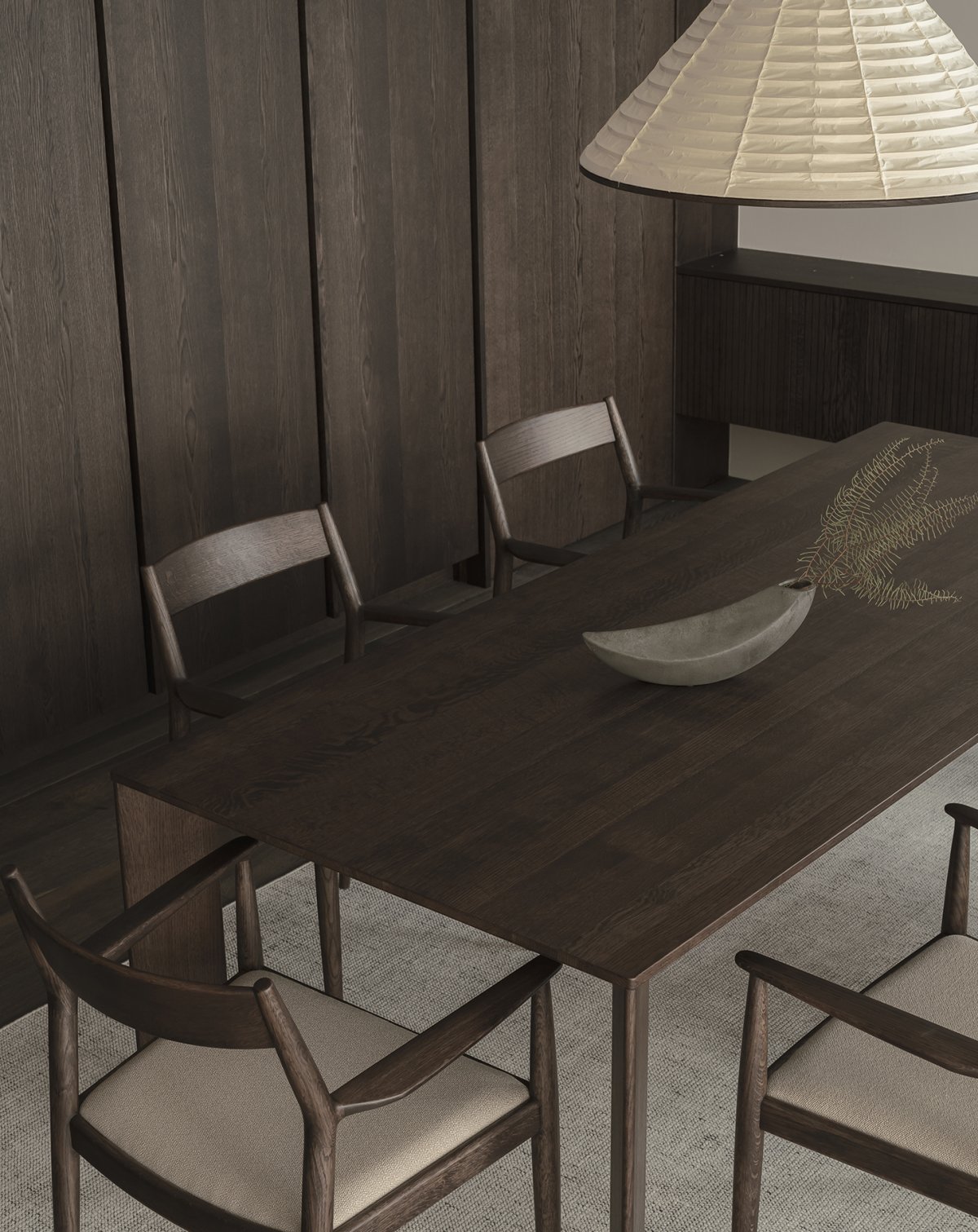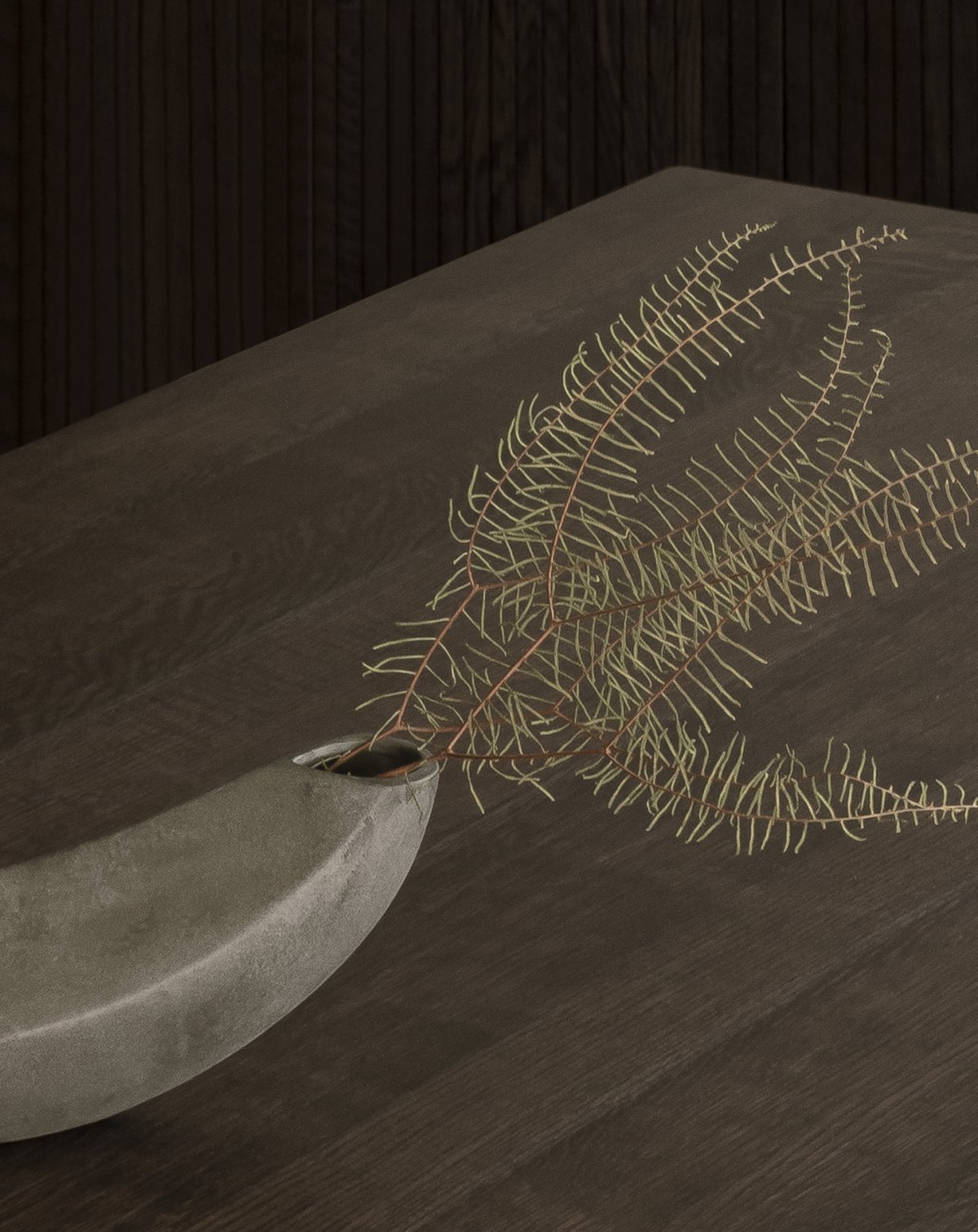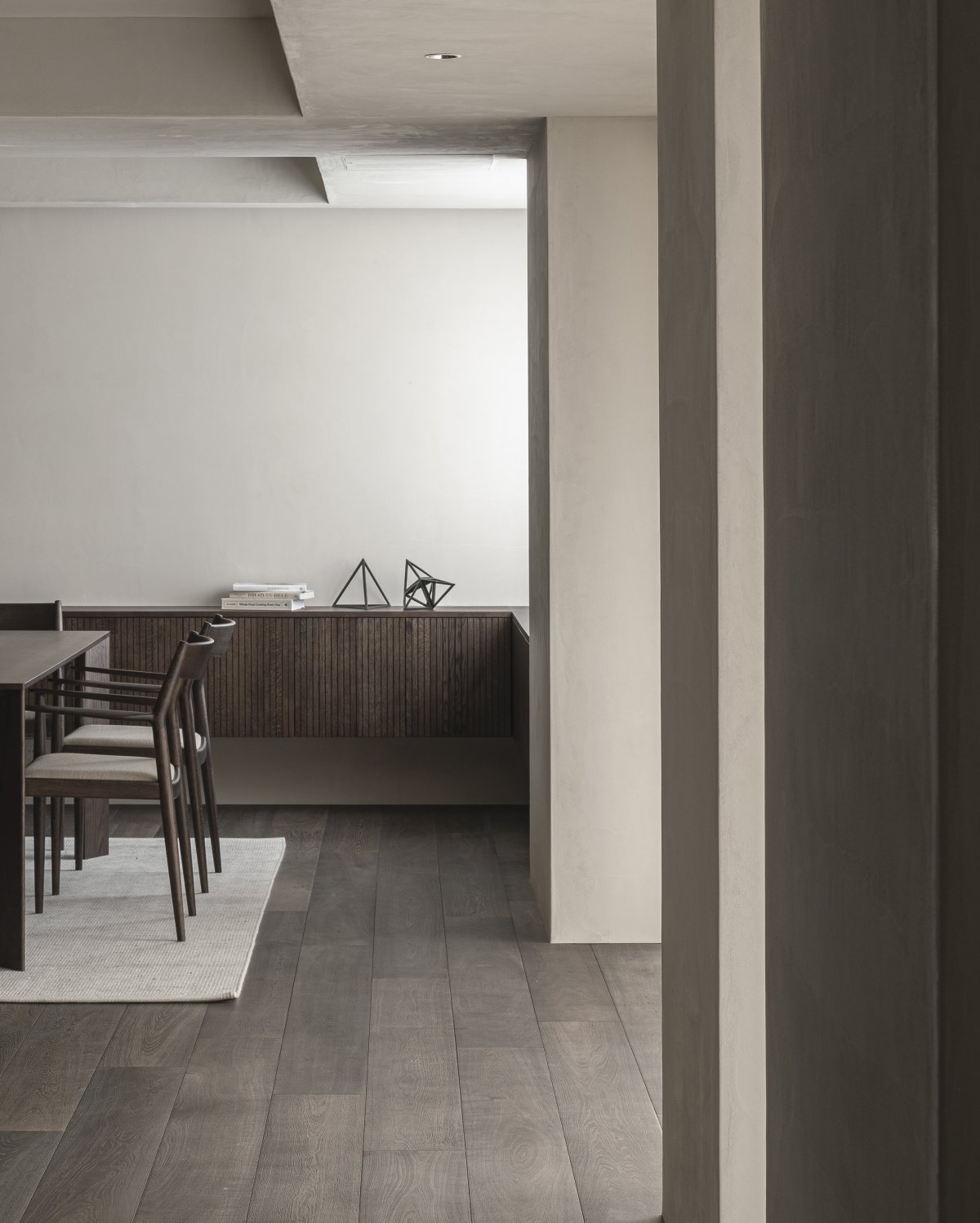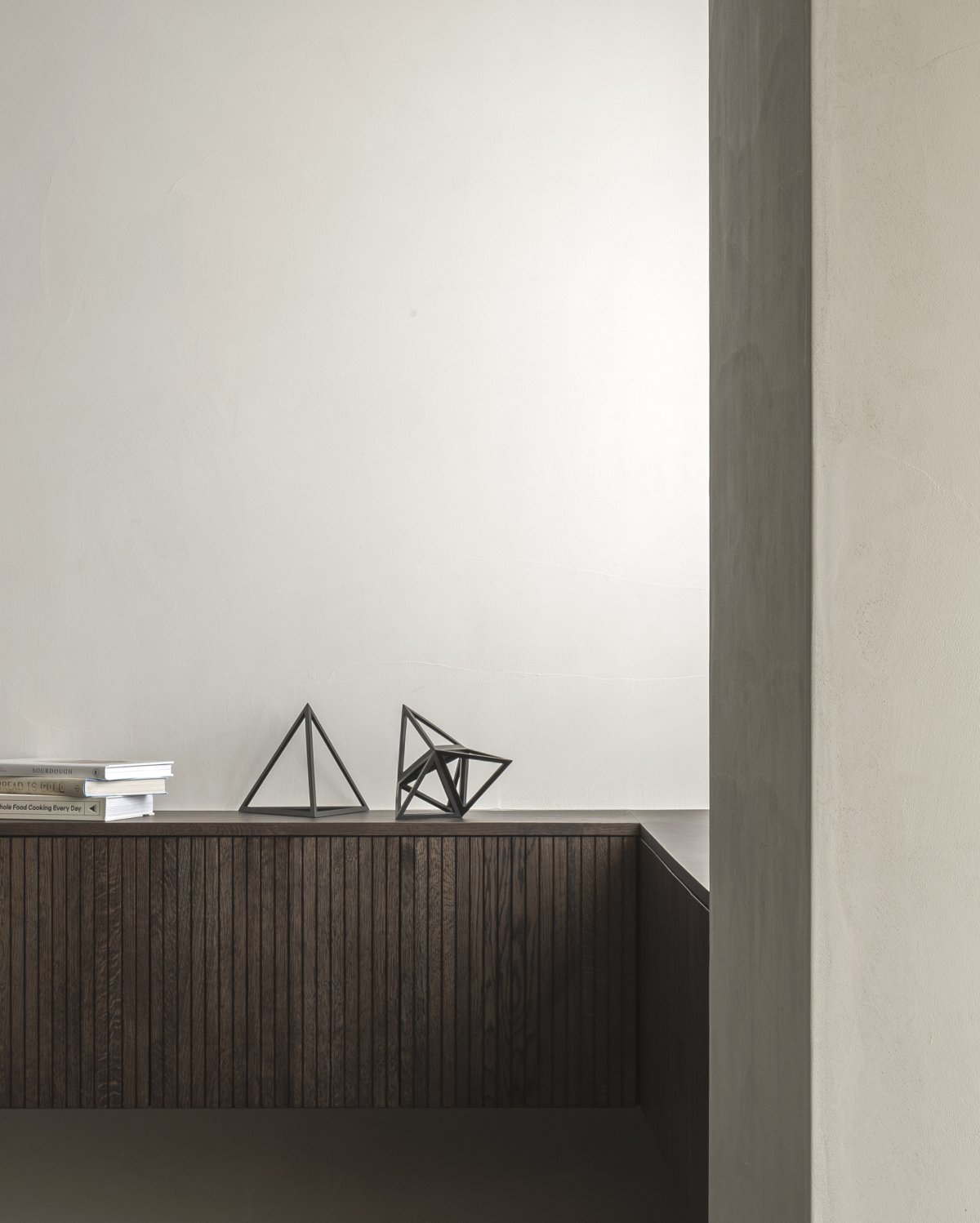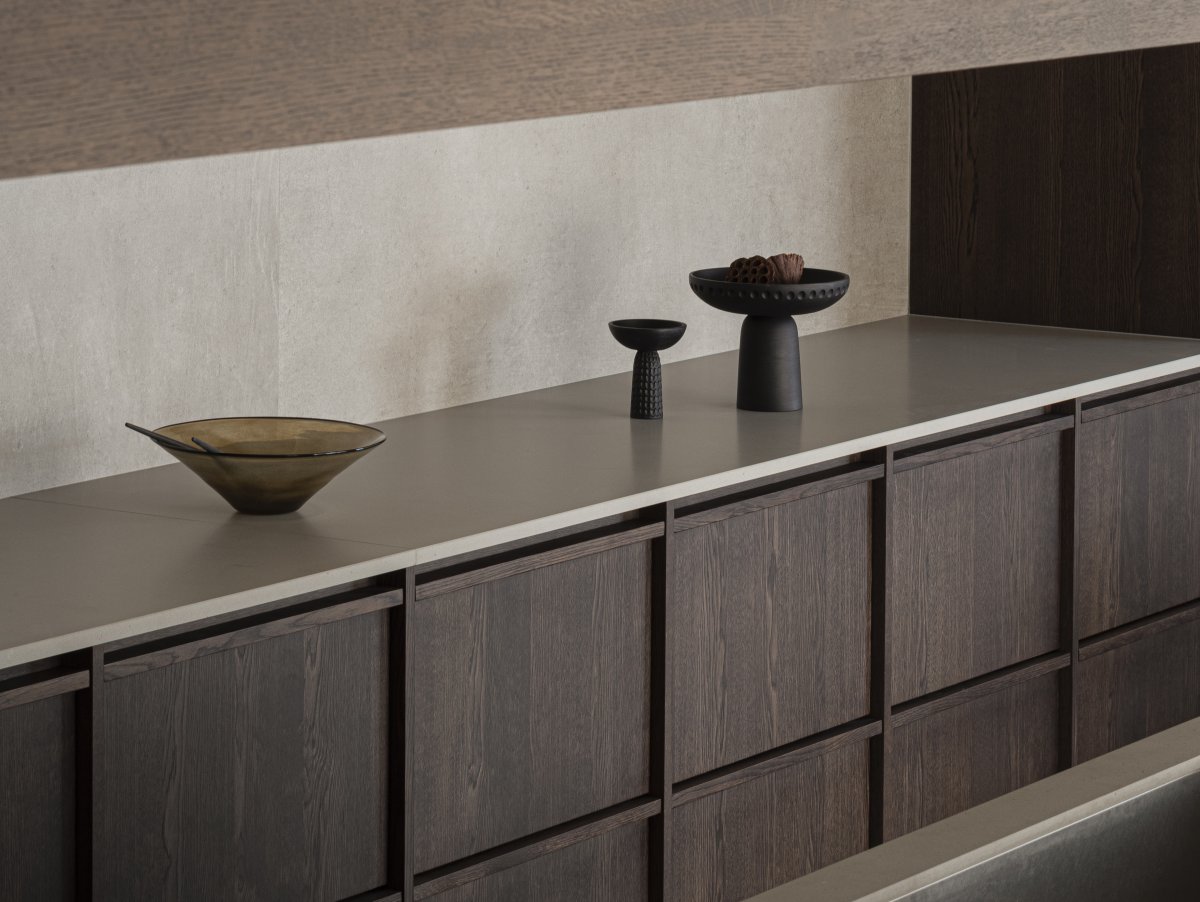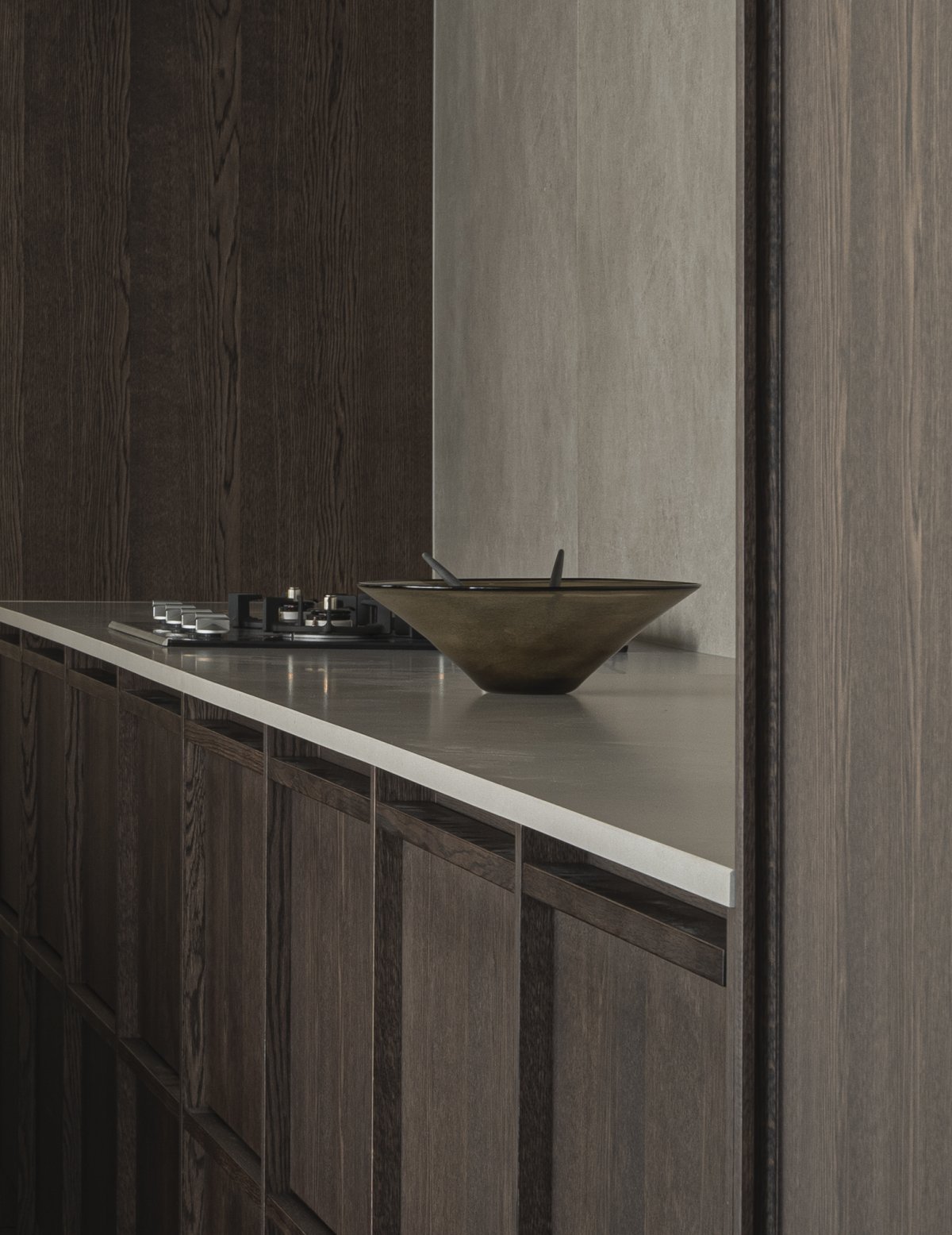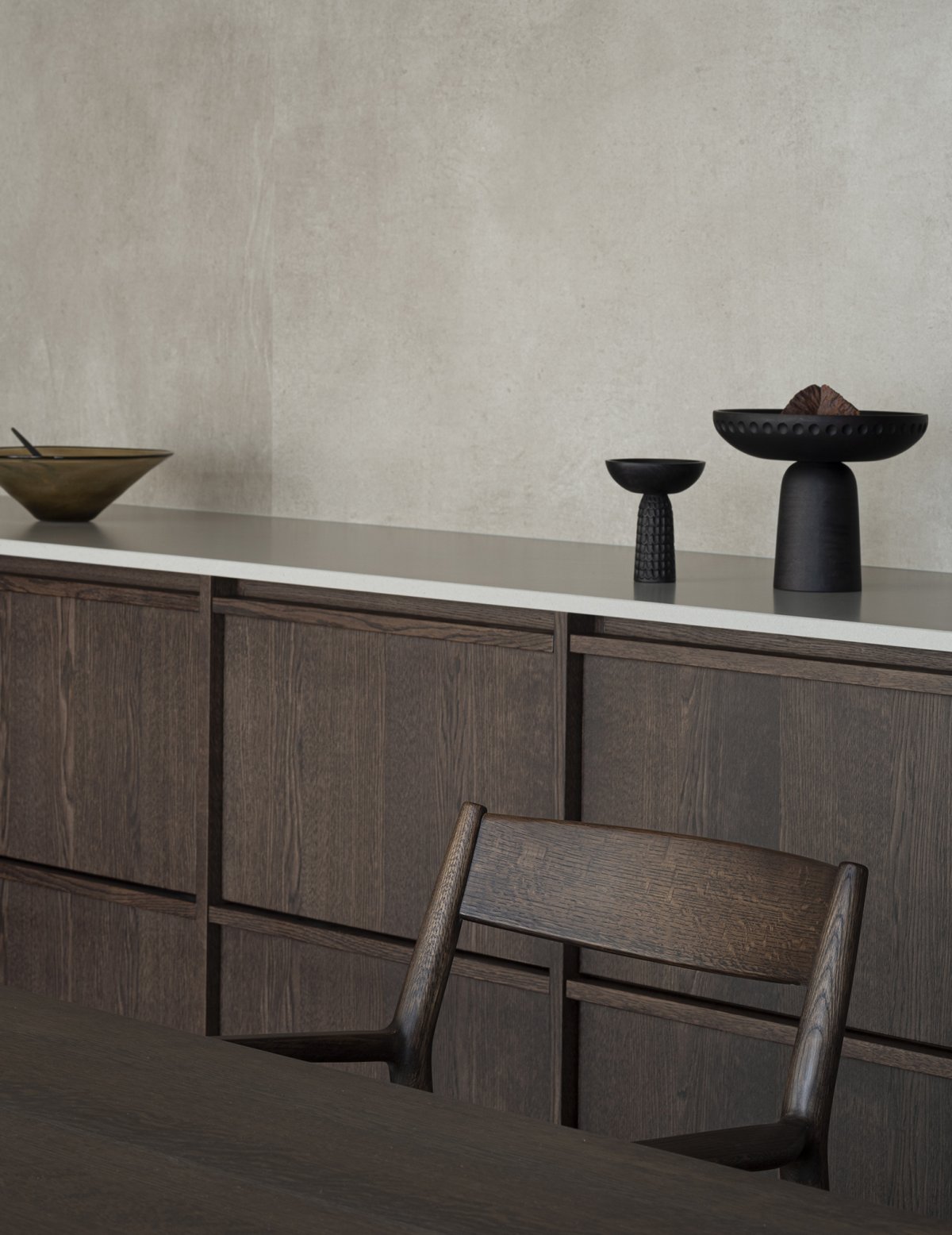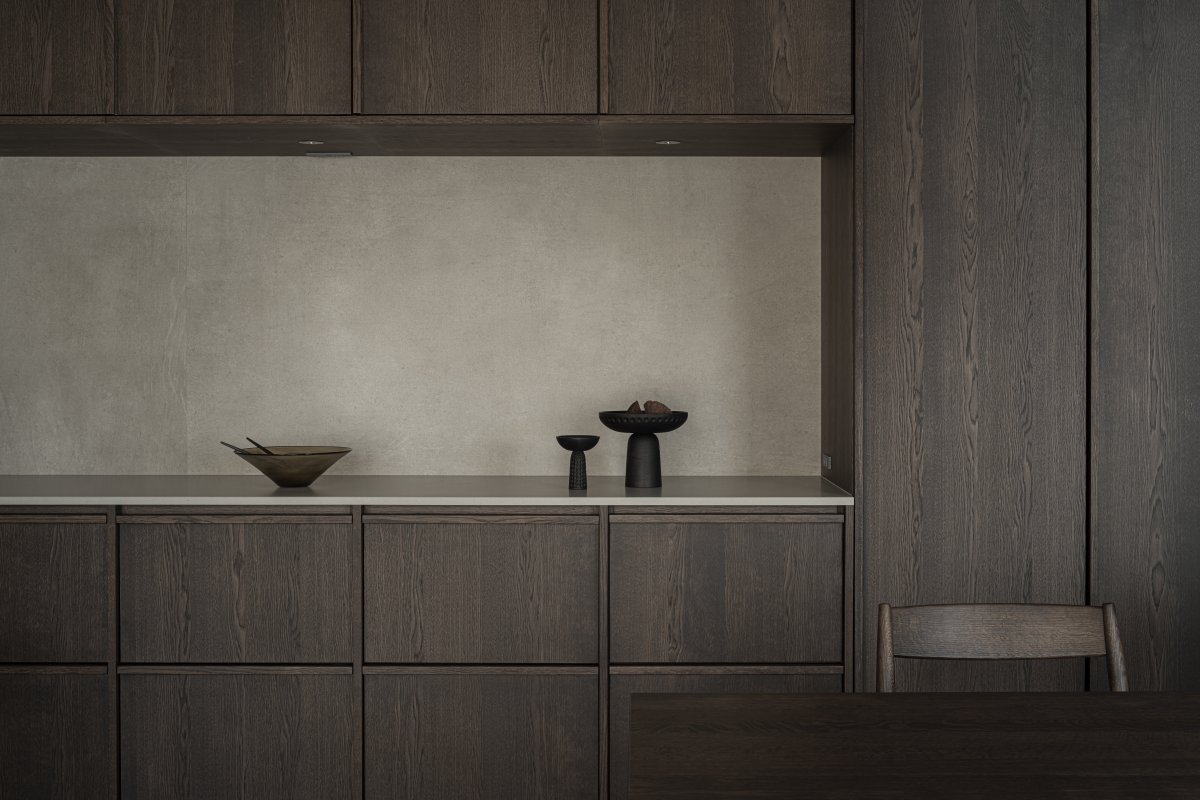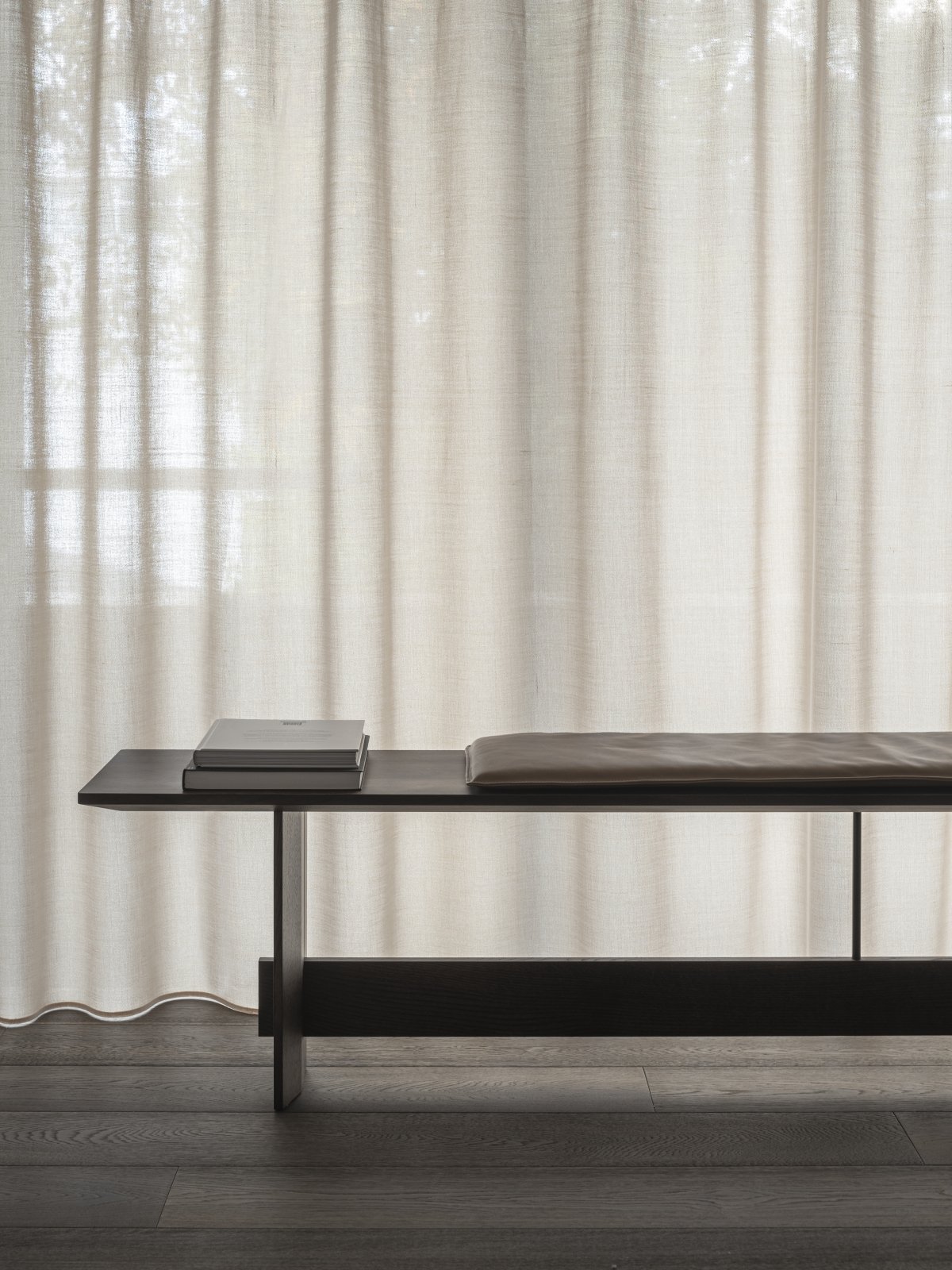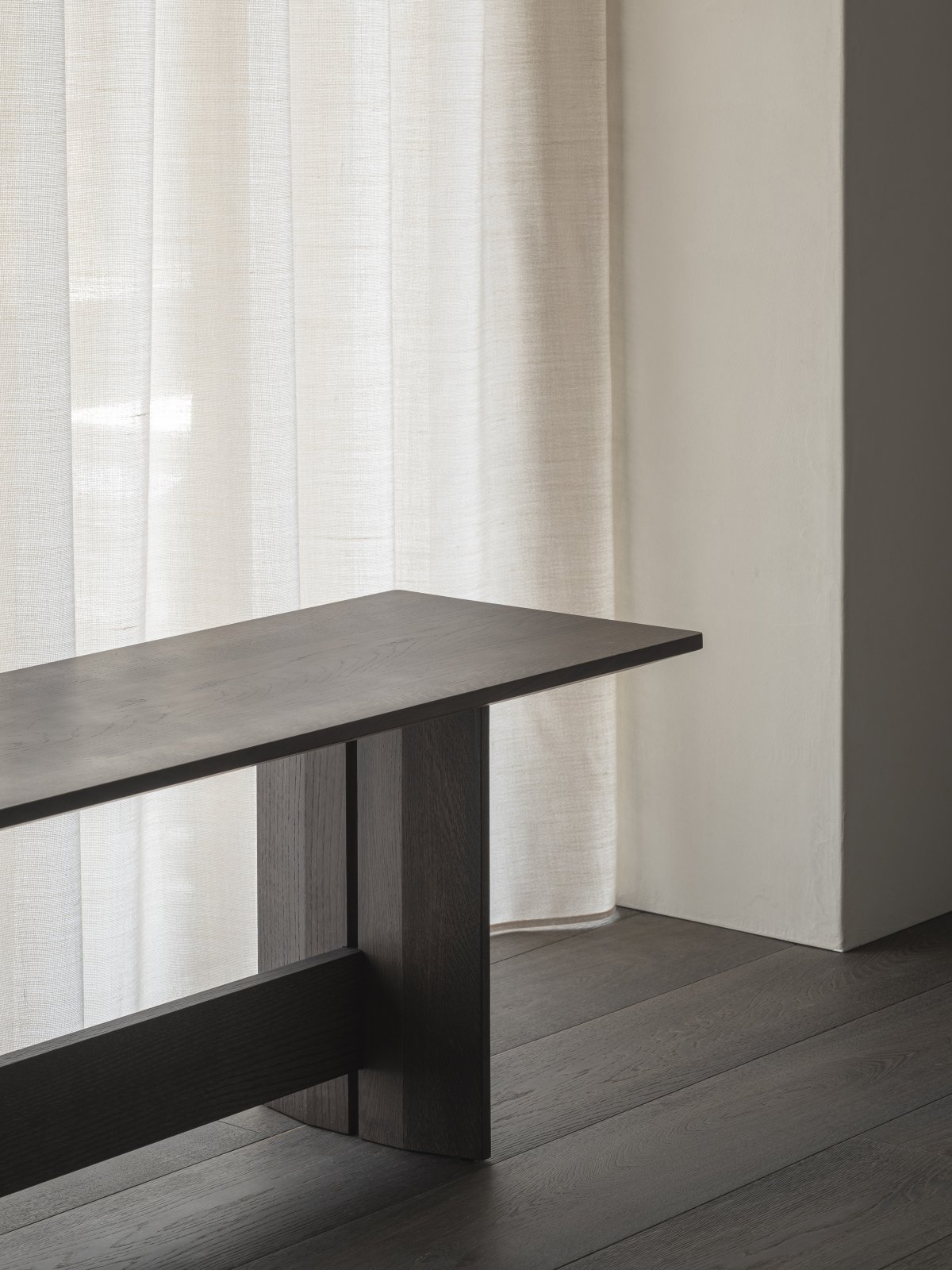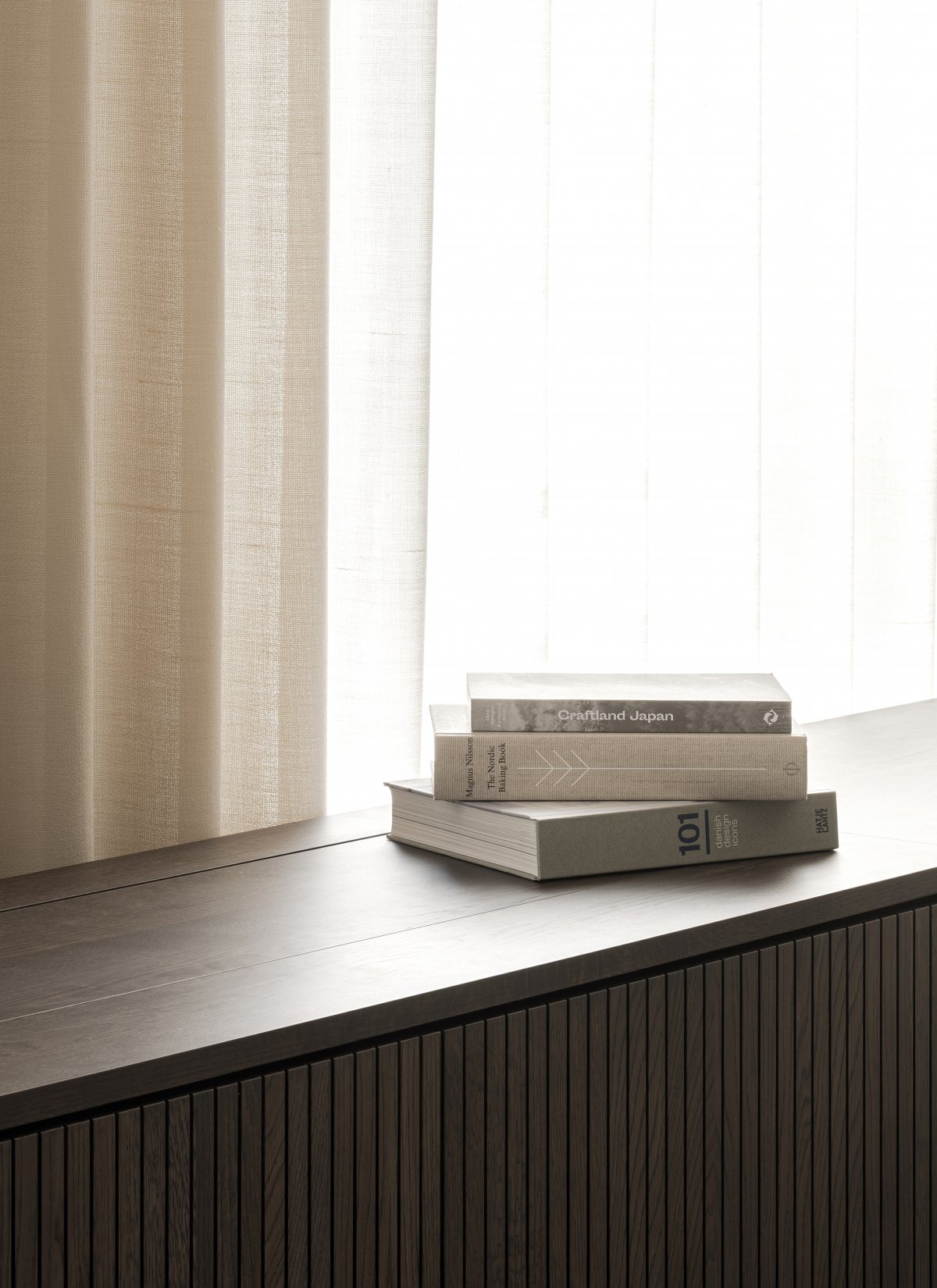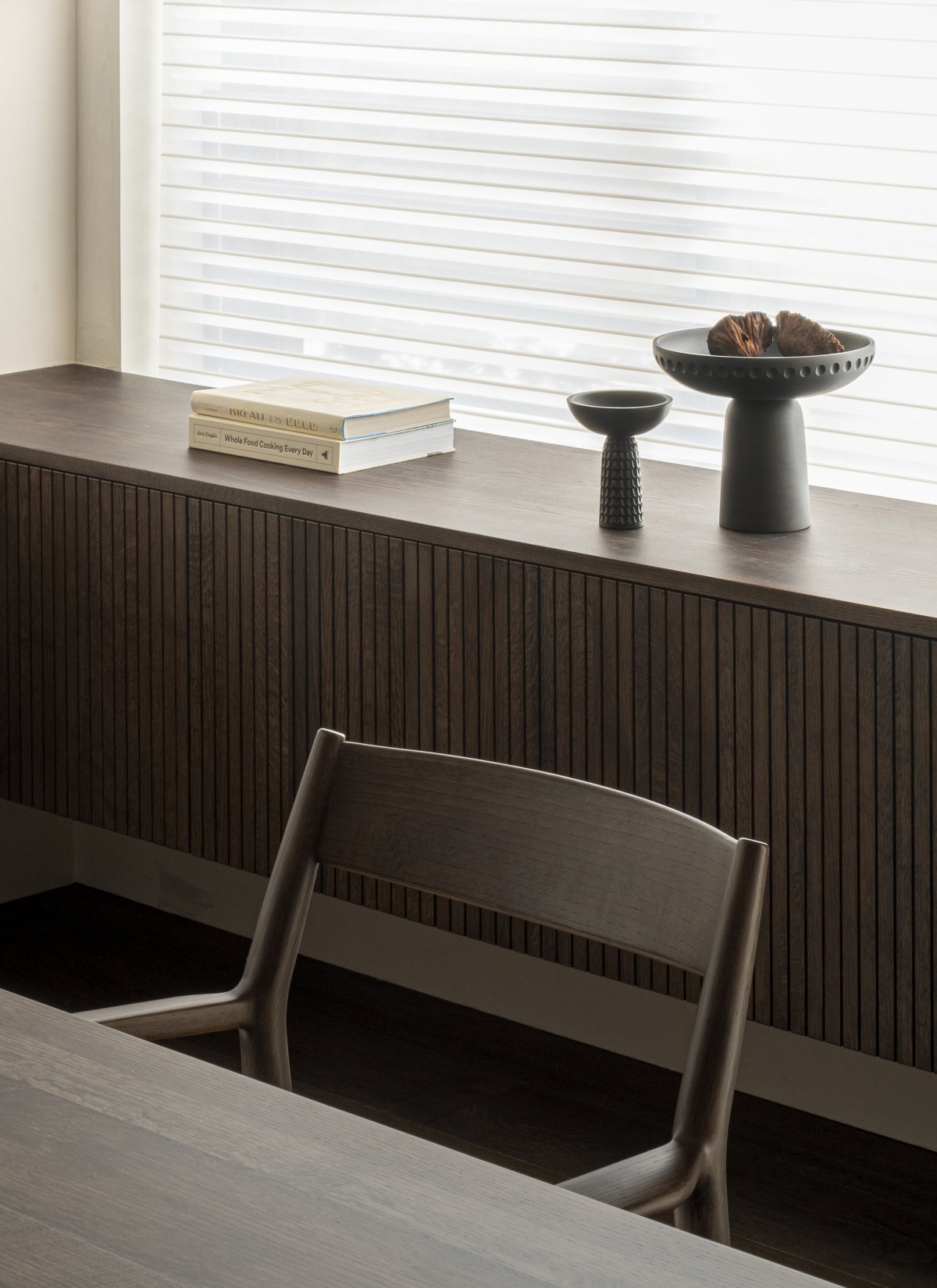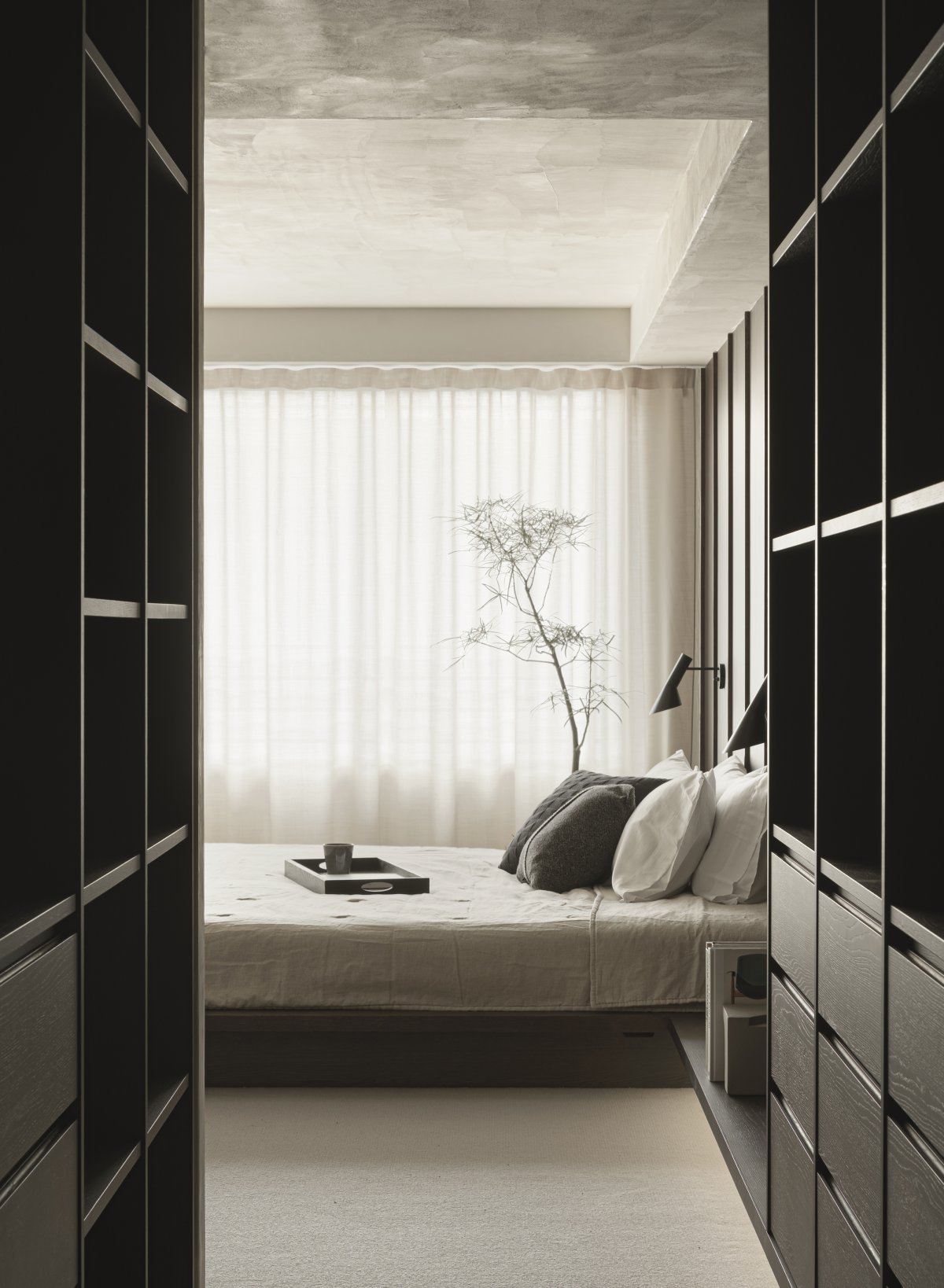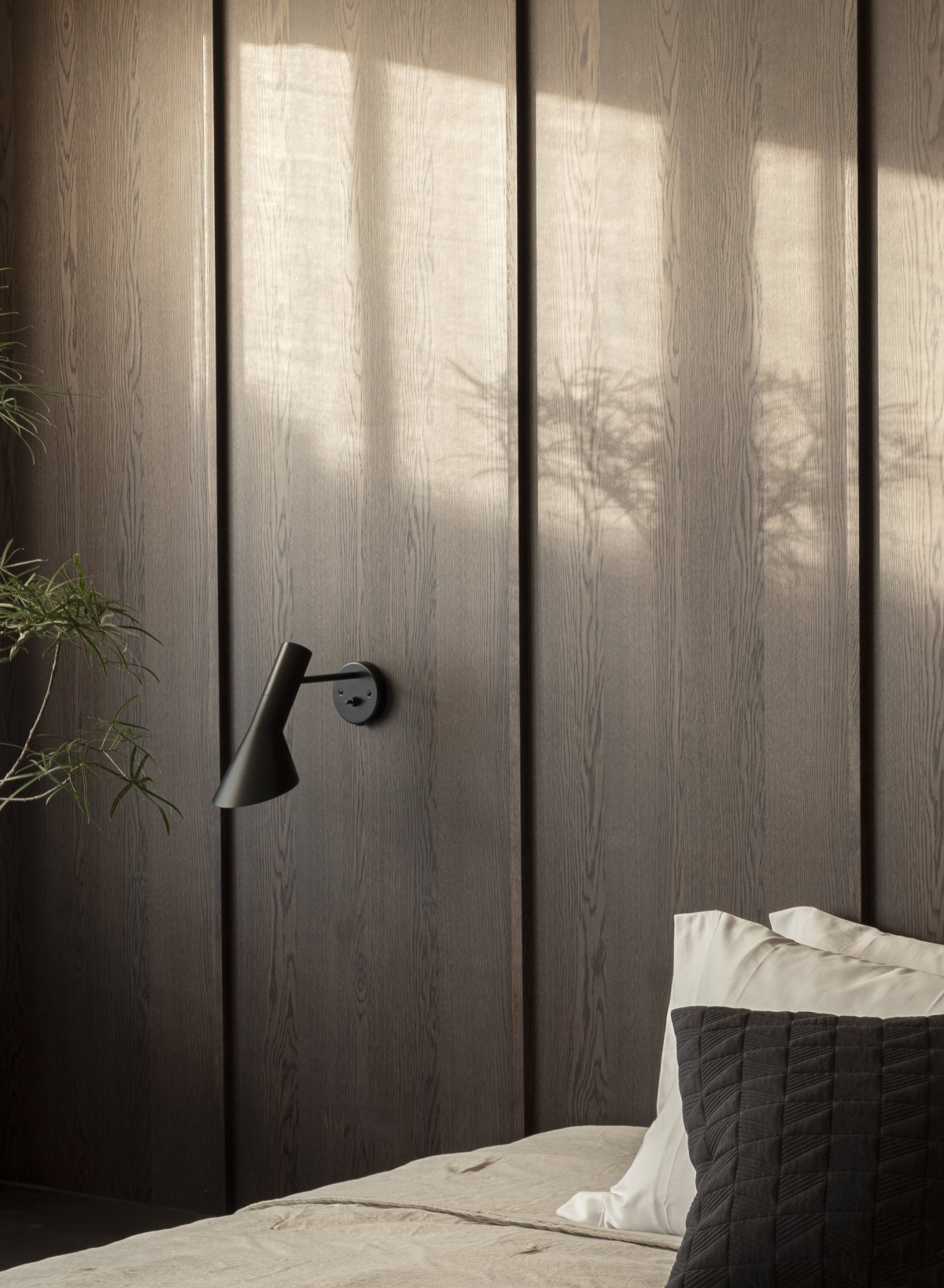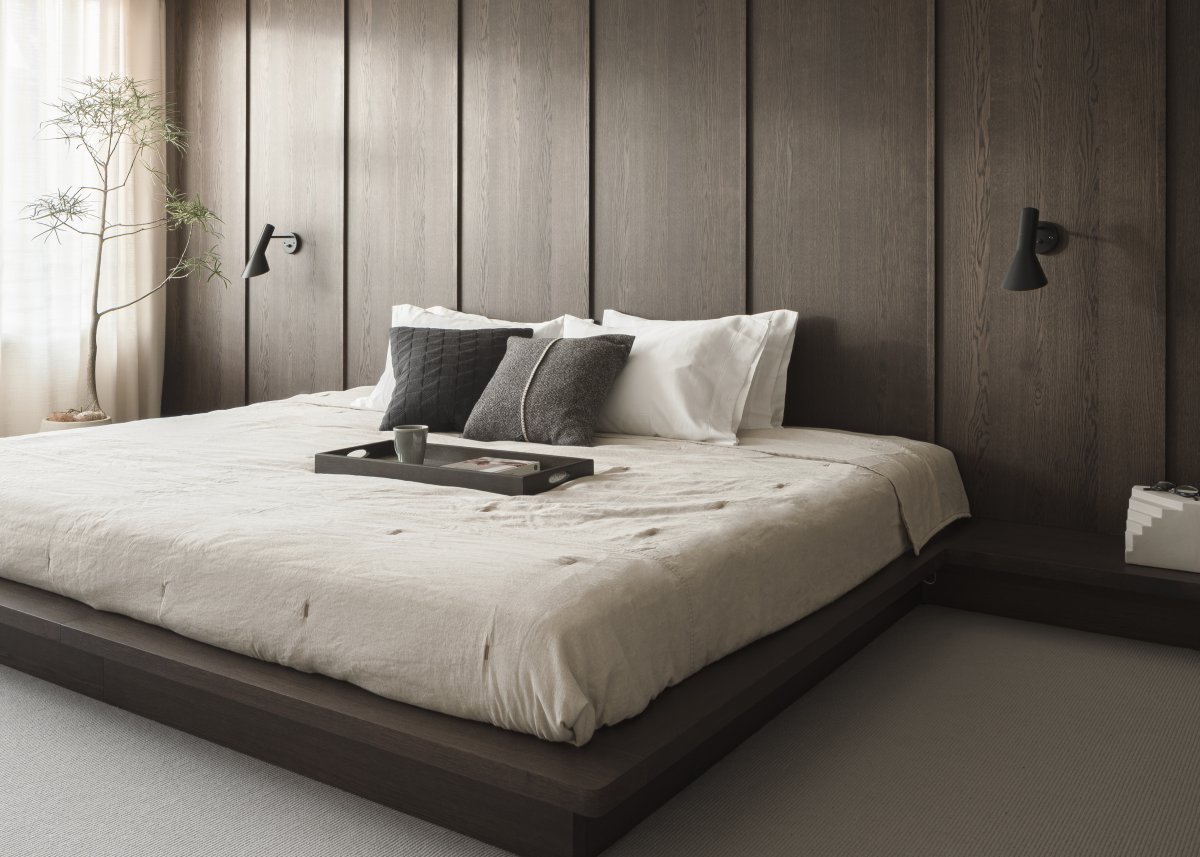
The Azabu Residence is the fourth case study project of Japanese furniture brand Karimoku Case Study and is conceived in close collaboration with Keiji Ashizawa Design. The latest additions to the collection of fine wooden furniture pieces are created as part of this complete renovation project and have its native setting in a luxury apartment built in 1988, tucked away in the quiet Nishi-Azabu residential district of Tokyo.
The apartment was built on a spacious and airy plot, rarely seen in Tokyo today. The greenery surrounding the entrance is meticulously maintained by gardeners and welcomes visitors in a harmonious way that establishes a sense of calm and connection to nature in the middle of the city.Similar to the previous Case Study projects, the Azabu apartment combines Japanese and Scandinavian design principles and aesthetics. A shared belief in the use of natural materials and a muted color palette lies as the foundation of the project, characterized by the focus on tactile, soft-minimal and timeless qualities.
In contrast to the previous Case Study projects as the Kinuta Terrace Apartments in Tokyo and the Archipelago House in Sweden, the Azabu Residence Project is completed in muted, dark tones enhancing and embracing the intimacy of shadows. The spacious but dimly lit apartment is a cozy, human-centric and protective dwelling away from the noise of the city. A calm and embracing interior for contemplation and private family life.
One of the core elements of the Case Study brand is the study of designand architectural history and the inspiration for many of the projects has been sparked by field trips to architectural sites, gardens, parks and temples in both Japan and Denmark.The Azabu project was designed shortly after a trip to the Americas and the inspiration of mid-century American and Brazilian modernism is evident in use of warm dark natural materials and wooden wall paneling, lush carpets and tactile upholstery, in the case translated into a new and dark version of a Japanese-Scandinavian interior.
- Interiors: Keiji Ashizawa Design
- Photos: Karimoku

